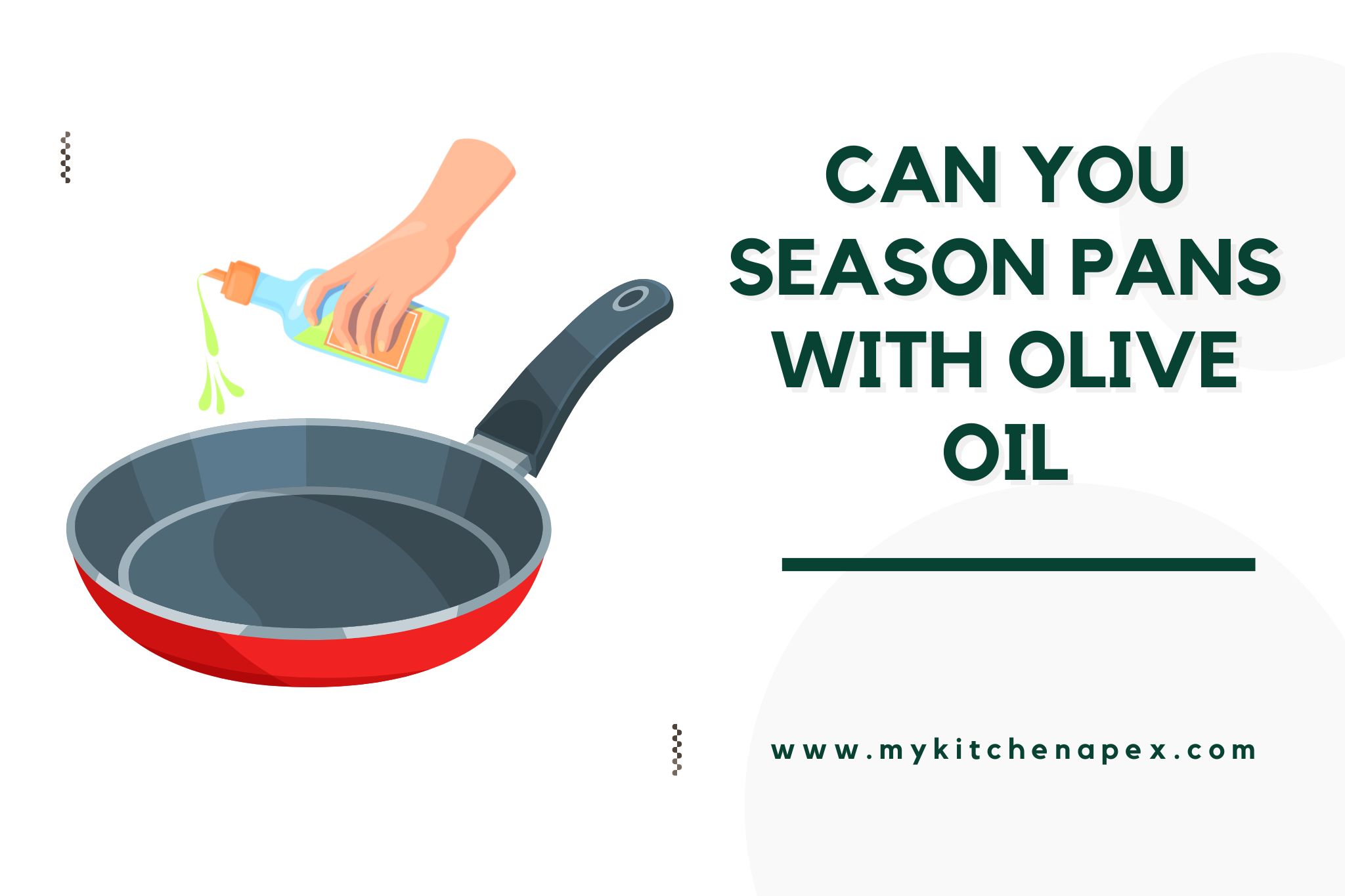Originally Created on: March 5, 2024 @ 6:10 pm
Are you tired of constantly replacing your pans due to them losing their non-stick properties? Have you ever wondered if you can season pans with olive oil to prolong their lifespan? We’ve all been there, frustrated by the deteriorating quality of our beloved cookware and seeking a sustainable solution.
Seasoning pans with olive oil is a traditional method that has been used for generations to create a natural non-stick surface. This technique not only enhances the cooking performance of your pans but also adds a layer of flavor to your dishes.
If you’re curious to learn more about this timeless culinary practice and its benefits, keep reading as we delve into the art of seasoning pans with olive oil.
Table of Content
Highlights:
- Seasoning pans with olive oil creates a natural non-stick surface
- Protects pans from rust and corrosion, extending their lifespan
- Cost-effective and sustainable way to maintain and improve pan performance
can you season pans with olive oil
Yes, you can season pans with olive oil. This process helps create a non-stick surface and prevents rusting. To season a pan with olive oil, start by preheating the oven to 350°F, then apply a thin layer of olive oil to the entire surface of the pan using a paper towel, and bake the pan for an hour to allow the oil to polymerize and create a protective layer.
Seasoning pans with olive oil helps to enhance their non-stick properties. This method also helps to protect the pan from rust and corrosion, extending its lifespan.
Using olive oil for seasoning pans is a natural and cost-effective way to maintain and improve their performance.
You May Also Like: can you cook in old copper pots
How to season a pan with olive oil
To season a pan with olive oil, start by preheating your oven to 350°F. Next, use a paper towel to apply a thin layer of olive oil to the entire surface of the pan, including the handle and any engravings. Make sure to use a high-quality, extra virgin olive oil for the best results.
Once the pan is coated in oil, place it upside down on the middle rack of the oven, with a sheet of aluminum foil on the bottom rack to catch any drips. Bake the pan for 1 hour, then turn off the oven and let the pan cool completely before removing it.
This process will create a natural non-stick coating on the pan, and with proper care, it will last for years to come.
How often should I season my pans
Seasoning your pans will depend on how frequently you use them. If you use your pans regularly, it’s recommended to season them every 3-4 months to maintain their non-stick properties and prevent rusting.
However, if you use your pans infrequently, seasoning them once or twice a year should be sufficient to keep them in good condition.
In addition to the frequency of use, factors such as the type of food you cook and the cleaning methods you use can also impact the need for seasoning. Cooking acidic or sticky foods, as well as using abrasive cleaning tools, may require more frequent seasoning to keep the pans in optimal condition.
By staying mindful of these factors and adhering to a regular seasoning schedule, you can ensure that your pans remain in good shape for years to come.
Also Read: Why is my non-stick pan peeling?
Can I use butter to season pans
Yes, you can use butter to season pans. Seasoning a pan with butter creates a natural, non-stick surface that is perfect for cooking various dishes. The butter helps to create a protective layer on the pan, preventing food from sticking and making it easier to clean.
However, it’s important to note that while butter can be used to season pans, it has a lower smoke point compared to other oils, so it may not be the best option for high-heat cooking. Additionally, butter can also go rancid if left on the pan for an extended period of time, so it’s essential to properly clean and dry the pan after each use to prevent this from happening.
Overall, using butter to season pans can be an effective and natural way to create a non-stick surface for cooking.
What oils are good for seasoning pans?
Seasoning pans with oil prevents rust and helps improve non-stick properties. Some good oils to use for seasoning pans include flaxseed oil, vegetable oil, and coconut oil.
Flaxseed oil is popular for its durability and high smoke point, while vegetable oil and coconut oil are readily available options suitable for most home kitchens.
Using oils with higher smoke points, such as flaxseed, vegetable, and coconut oil, is beneficial for seasoning pans as they can withstand the high temperatures needed for the seasoning process.
It’s important to apply a thin, even layer of oil to the pan before heating and cooling it to create a protective and non-stick coating.
By choosing the right oils for seasoning, you can maintain and improve the performance of your pans for long-term use.
Is it OK to use olive oil on nonstick pans?
Yes, it is generally safe to use olive oil on nonstick pans. Olive oil has a high smoke point, which means it can be heated to a high temperature without burning or smoking, making it suitable for use on nonstick cookware.
Using a moderate amount of olive oil can help to prevent food from sticking to the pan without damaging the nonstick coating.
However, it is important to use olive oil in moderation on nonstick pans. Using too much oil can cause it to build up and become sticky, potentially damaging the nonstick surface over time.
It is also important to avoid using cooking sprays with propellants on nonstick pans, as these can create a sticky residue that is difficult to remove.
Also Read: are stainless steel cookware safe
Final Thoughts
In conclusion, seasoning pans with olive oil, butter, or other high-smoke point oils like flaxseed, vegetable, or coconut oil can prolong their non-stick properties and prevent rust. This traditional method creates a natural, protective layer on the pan, enhancing cooking performance and adding flavor to dishes.
Proper maintenance, including regular seasoning every 3-4 months or as needed, is crucial for optimal results. Using the right oils and following the correct seasoning process can ensure the long-term use and quality of your beloved cookware.

